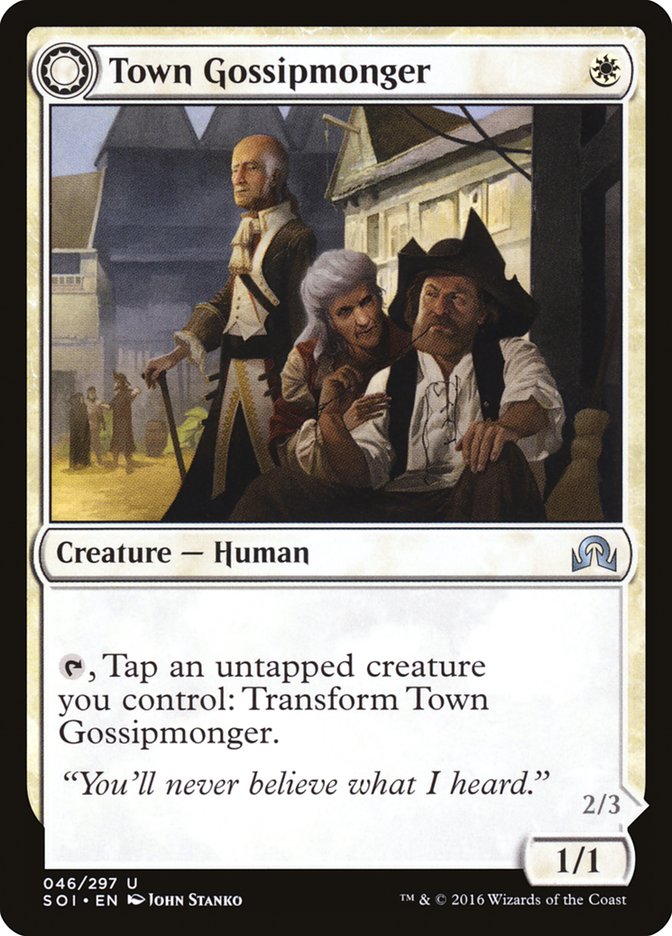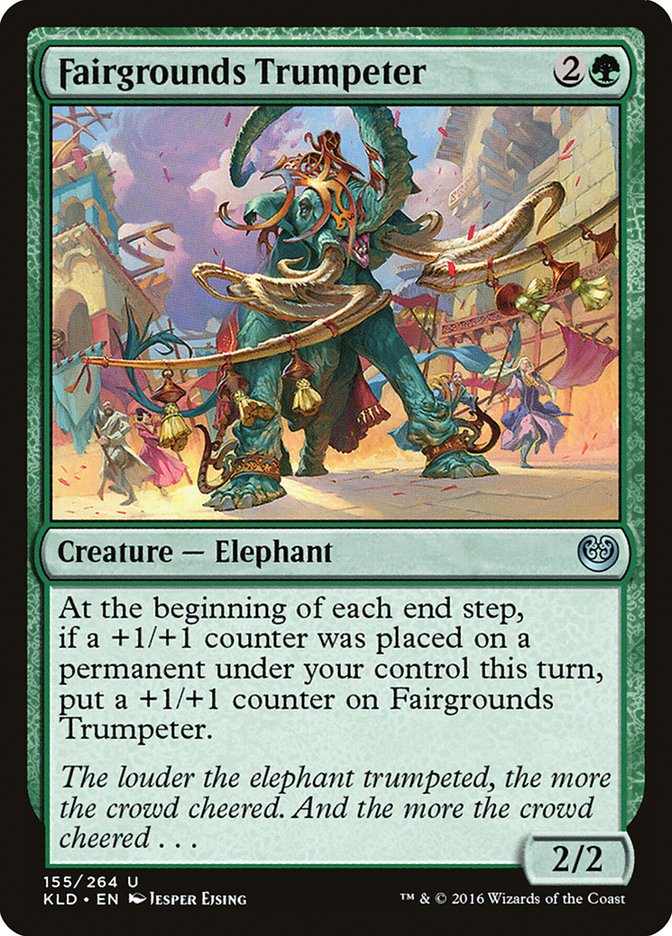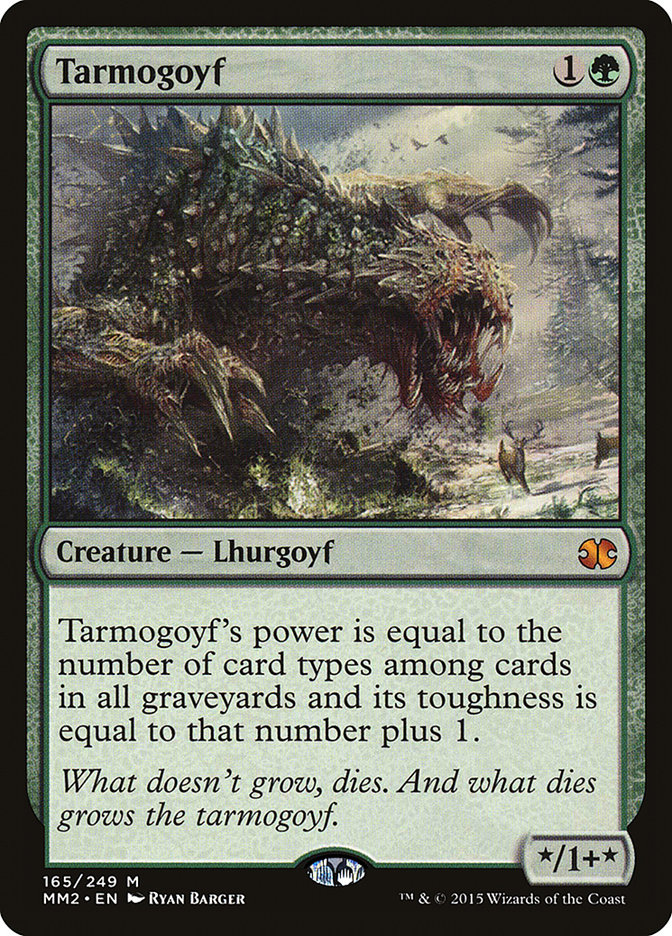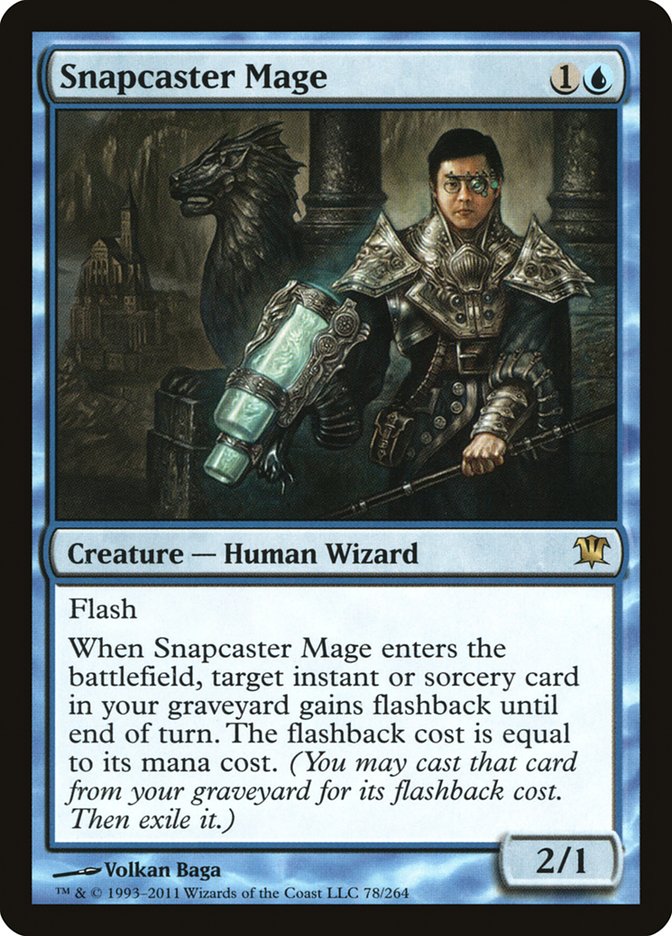Season Three of the SCG Tour has come to an end, and I must say I am extremely proud of what Team Cardhoarder could accomplish this season. We already had some trophies and a fistful of Top 8s, but to cap it all off with putting two players into the Top 8 of the Atlanta Invitational and Jacob Baugh walking away with the trophy feels great. It helps to justify that a lot of the ideas that we had and the processes that we work through were successful.
Creatures (26)
- 4 Golgari Grave-Troll
- 4 Stinkweed Imp
- 4 Narcomoeba
- 1 Scourge Devil
- 4 Bloodghast
- 4 Prized Amalgam
- 4 Insolent Neonate
- 1 Haunted Dead
Lands (20)
Spells (14)

Ultimately, I ended up skipping the Invitational for personal reasons, but that doesn’t mean that I wasn’t checking my phone as often as I could to keep an eye on how everything went. In addition to Jacob winning the Invitational, we also saw Brennan DeCandio win the Standard Open and Caleb Scherer win the Modern Classic.
Creatures (17)
- 2 Pilgrim's Eye
- 1 Kalitas, Traitor of Ghet
- 2 Mindwrack Demon
- 2 Tireless Tracker
- 1 Emrakul, the Promised End
- 3 Ishkanah, Grafwidow
- 4 Grim Flayer
- 2 Noxious Gearhulk
Planeswalkers (4)
Lands (23)
Spells (16)

Creatures (26)
- 4 Golgari Grave-Troll
- 4 Stinkweed Imp
- 4 Narcomoeba
- 1 Scourge Devil
- 4 Bloodghast
- 4 Prized Amalgam
- 4 Insolent Neonate
- 1 Haunted Dead
Lands (20)
Spells (14)

I think it’s clear that being on a team is a huge boon for success on the SCG Tour, not only in getting the sense of what decks are being played and how to attack the metagame, but also just interacting with each other and gleaning best practices. As more and more Magic strategy is readily available online via articles and streams, it’s still important to make sure that you have a sound mechanical game.
Having the right deck and being prepared for the meta aren’t the only things that you can do to increase your chance for success.
Best Practice #1 – Pre-Match Information
In a game of Magic, there is a lot going on that isn’t just playing the game of Magic. Yes, you take your turn and your opponent takes their turn, but during a game, and even before and between games, there is information to leak and information to gain.
All this information adds up. You may hear people talk about percentage points or edge gains and losses. These types of best practices are things that you can do to help prevent information leaks, which can cause you to lose percentage points, and to gather information to gain percentage points.
Before the game starts:
At the start of the game, you and your opponent will sit down and take out deck boxes. A non-small amount of the time my opponent will open their deck box and there will be an outward facing card. This leaks information as to what you are playing. Most of the time, players aren’t going to go out of their way to try to see cards that are in your deck. Necks aren’t being craned and nothing shady is happening. But when you open your deck box and there is an outward-facing card, that is free information that can affect mulligan decisions, which may end up being huge.
Make sure that you keep your deck and sideboard facing each other in your deck box to negate this. It’s simple and likely isn’t something that everyone has thought about, but changing your habit to put your deck in your deck box in this manner does help.
In addition, make sure when you shuffle that you aren’t flashing cards to your opponent. Again, no one should be purposely staring at the bottom of your opponent’s deck to try to see cards, but the amount of careless shuffling that I see either against me or at the tables when I’m playing is too high.
Another small thing that I try to do that I don’t see everyone do is have a fresh paper for my life total every match, making sure that any of my previous life total papers aren’t visible. Again, this isn’t wholly intuitive, but imagine this scenario:
I am playing Modern and my opponent sits down with their life pad that has the last match clearly on it. On their side for life total, I can see that there aren’t any of what would appear to be fetchland, shockland, or fetch plus shock damage. This gives me information. Hatebears maybe? Could be an Elves deck with no fetches.
Likewise, I see a “20 into 17, into 15” or an “18 into 16” or just complete jumps to these totals without the incremental changes on my opponent’s life pad. That looks like shock and Thoughtseize to me, which is information that I can use for mulligans. This is compounded if you see card names listed out. Inquisition of Kozilek, Thoughtseize, Duress, and Gitaxian Probe are the likely candidates.
What if you see poison counters on what appears to be their opponent’s life total?
Oh, I see that you marked that you had infinite health last round. I can use that information.
This is something that takes some format knowledge to gain an advantage from, but it’s very easy to not leak any of this information by using a fresh sheet of paper for each match.
Chatter:
This one may make me sound too competitive, but I actively try to refrain from chatting with my opponent at the beginning of the round about what I played against previously and my record against those decks. This is information that can be used against you, even if it is not as blatant as the others.
“Yeah, last round I got crushed by Infect.”
Well, it’s a good thing that I’m on Infect and from your response I can glean that you think it’s a bad matchup. That can reduce the number of decks that I need to try to put you on and affects my mulligans and gameplan.
Once the first game is over, I 100% will chat about past opponents and records….but only after there is no more information to hide. I still talk with my opponent about overall record before the match starts and engage in other types of conversation, but if I am asked what I played against, I generally just try to ask a different question to deflect.
We are not obligated to give that information, and it’s in our best interest not to.
Sideboarding:
There is some information that can be leaked and gained during sideboarding, but I feel that this area is insignificant in comparison to the others. Once you and your opponent know what each other are playing, then sideboarding is elementary. However, if you are quite familiar with the format and have a general idea of how many cards come in against you, if your opponent doesn’t in-and-out a full fifteen cards, then you can gain that information.
When I sideboard, I will take and shuffle my entire fifteen-card sideboard into my deck and then take out fifteen cards. I do this regardless of how many cards I will be bringing in so that I can hide that information. It also helps to think of your deck holistically. When building a sideboard for your deck, it’s important to think about it as an entire 75 rather than a 60 and a fifteen. Designing your sideboard with your post-sideboard 60 in mind is helpful, and sideboarding this way helps keep that as your active mindstate.
Best Practice #2 – In-Game Mechanics
This covers everything from not having mish-mash game zones to how you physically manipulate your cards in each game.
Changing habits can be rough, but once you have formed habits out of doing things properly and efficiently, then you can streamline your mechanics, which has a few benefits. First off, you can remove unnecessary ambiguity. This in and of itself will help you finish matches within the timeframe allowed and help prevent draws, and it will help to protect you from incorrect interpretation in the event there is some miscommunication.
Here are some of the things that I try to make habit:
- Drawing my card the same way regardless of if I have Miracles in my deck or not. I will pull one card off the top of the deck and look at it before I put it in my hand.
- In any given tournament, I will generally use the same game zones each time, especially between games in the same match. This will reduce confusion on your opponent’s part and prevent any miscommunication.
- Keep my hand visible always. I try to not stack them or hold them in a way that’s not visible to my opponent. Even if this reduces the number of times that my opponent asks me how many cards are in my hand by a small amount, it will still affect the bottom line in terms of draws.
- Shuffling the card that I draw into my hand. I do this to help prevent card tracking from my opponent. This is as simple as going through my normal draw motion and then shuffling the cards around in my hand before I play my land. Once this is a habit, it takes no time at all and you can even use that split second to be thinking about how what you drew affects your turn.
- Keep my lands easily viewable and distinguishable for my opponents. Stacking up your lands ultimately causes you to lose time when your opponent is questioning what you have available. Also, doing this intentionally to try to hide information from your opponent may not be against the rules, but is something that I would label as scummy. (An aside: I am not for or against “lands in front”, but I am 100% for both players doing the same. The standard now is lands in back, so that is what I support.)
Announcing things:
This one is big and will make an impact on the number of judge calls that happen and will better your and everyone else’s Magic tournament experience.
Announce your stuff that you are required to announce.
Are you done with assigning blockers? Do you need some time to figure out how you want to assign blockers? Are you figuring out which creatures to attack with? Are you responding to an ability that is on the stack? Did something trigger when you met the conditions and it will have a visible effect on the game state?
Don’t be afraid to communicate with the opponent; this is something that I feel just doesn’t happen enough. Also, I would suggest to not assume anything and be explicit. If you make it a habit, then there is no ambiguity.
Now, I will confess that I do find it a bit overbearing when people announce every single phase and give me ample time to respond. I respect the courtesy and will usually tell them that I will stop them or interrupt them if I have any responses to anything – especially if they are playing a trigger-centric deck.
Best Practice #3 – Hiding Information During Gameplay
Much like information being leaked or gleaned before the match starts, there is some information that you can hide and glean during the game. In the previous section I mentioned trying to prevent my opponent from tracking cards in my hand, but there are some other instances of information that you can give up and give your opponent an edge.
If you draw a card and then immediately spread out your stacked graveyard, or pick up your graveyard and you can cast Snapcaster Mage, I am going to immediately put you on Snapcaster Mage.
It can also be a bit difficult to look at your graveyard without your opponent knowing that you are, but picking different times for it and having your graveyard be visible helps.
This type of tactic can also be used to bluff where they may have not drawn a Snapcaster Mage, but I have found in most cases that when your opponent immediately snatches up that graveyard to look through it after drawing their card, something is likely to gain Flashback at some point.
One point that I want to touch base on is derived information. Per the rules, you are not required to confirm or deny derived information, but lying about such intentionally is considered cheating. What this means is that if your opponent asks you what power and toughness your Tarmogoyf is, your options are to not answer, tell them that you don’t have to answer, or to tell them the power and toughness of your Tarmogoyf.
With that rules knowledge in mind, I am a huge proponent of always answering a question about derived information. My reasoning behind this is that information will eventually be figured out. The opponent can take their time to figure out that information. That time can possibly be the difference between a draw and a win.
Let’s say you’re playing Shardless Sultai and you are about to draw. You are way ahead on the battlefield and if you only had one or two more turns you could finish the game. During the match, you declined to verify the power and toughness of your Tarmogoyf, which caused your opponent to pick up each graveyard and verify on their own. They decline your request for a concession, with a nonzero part of that decision being how you interacted with them in regards to derived information.
I think that scenario is more likely than gaining an edge from a misplay based on calculating derived information incorrectly. You possibly could have gotten those extra turns to finish the game if you would have just answered the question about the Tarmogoyf.
You aren’t required to, but I think that it’s more of a hindrance than a benefit to take the stance of not verifying information.
Your Best Practices
Now, I know that is a lot of information, and a lot of habits that you may not already have in place. Once they are habits, though, you can quickly get through all your in-game mechanics. This will help you keep or gain percentage points from not leaking information and help reduce the number of unintentional draws that you receive. Reducing ambiguity, communicating clearly, and making each match a great experience for both you and your opponent are some of my goals in every match that I play. I also want to win, too, but we all know how that goes sometimes.
I want to give huge congratulations to everyone who qualified for the Players’ Championship in Roanoke, Virginia, and I can’t wait to watch the coverage of this unique event. Lots of great Magic will be played, and a whole bunch of money is going to be won.
Please let me know in the comments who you think is going to win the Players’ Championship and share any best practices that you have that I may have missed in this article.





